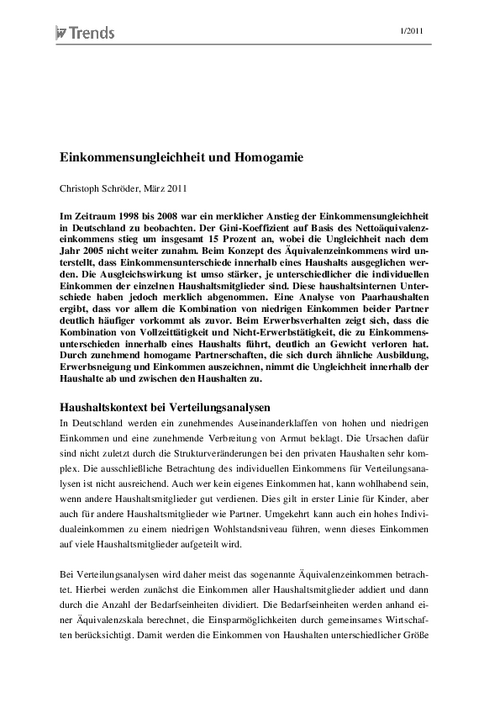From 1998 to 2008 income inequality increased markedly. The Gini coefficient of the net equivalized income rose by 15 percent. Conceptually, using equivalized incomes implies that differences in the income within the households are eliminated. This redistribution is the more pronounced the more the individual incomes differ. These intra-household differences have diminished, though. The analysis of couple incomes reveals that the combination of low incomes of both partners has become more frequent. On the other hand, the breadwinner model with one partner working full-time and one partner not working at all – a combination mostly accompanied by high income differences within the household – has become less important. The increasing similarity of the partners with respect to education, labor force participation and income has reduced the inequality within the households but increased the inequality between households.
Download | PDF


